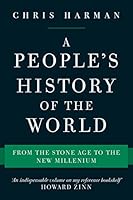Sublime
An inspiration engine for ideas

We allowed ourselves to accept the politics of inevitability, the sense that history could move in only one direction: toward liberal democracy. After communism in eastern Europe
Timothy Snyder • On Tyranny: Twenty Lessons from the Twentieth Century
as knowledge became the most important economic resource, the profitability of war declined and wars became increasingly restricted to those parts of the world – such as the Middle East and Central Africa – where the economies are still old-fashioned material-based economies.
Yuval Noah Harari • Homo Deus

David Wengrow • An archeological revolution transforms our image of human freedoms | Aeon Essays
An agrarian surplus sustained urban elites and their elaborate high culture. In the towns, an artisan class of legendary skill had sprung up to cater for these elites’ material demands.
John Darwin • After Tamerlane: The Rise and Fall of Global Empires, 1400-2000
After playing a crucial role in the shaping of modern Europe for more than two hundred years—think of Mendelssohn, Marx, Freud, Mahler, Kafka, Einstein—Jews will gradually leave center stage. The golden era of European Jewry will be over.
Ari Shavit • My Promised Land: The Triumph and Tragedy of Israel
Obviously Reich’s influence went way beyond just me. Alongside other authors such as Anthony Giddens[411] and Jeremy Rifkin[412], he was instrumental in crafting the message of a new generation of progressive leaders that the era of the steady, lifelong job was over. In a more global and unstable world, lifelong education was the new key to
... See more